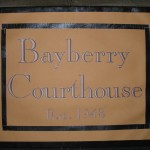Posted by Debby on June 25, 2013
Since we now have several “serial skits” posted as free downloads on this website, this might be a good time to discuss just what it is that makes a “serial skit” different from our “skit series.”
A “serial skit” is a skit made up of several short acts which are performed at intervals throughout your retreat or event. There is a continuous story line with recurring characters. As the retreat progresses, we follow the same characters in our skit as they learn lessons that emphasize and reinforce the theme of the retreat. We find that our women enjoy and look forward to a skit progressing during the retreat, and watching the same characters learn and grow. The impact a retreat skit can have is worth the time and effort!
The “skit series” differs from a serial skit in that each skit in the series is a stand-alone skit. While the characters may be recurring, there is no continuous story line. Most of the time, the different skits in a skit series could be used in any order, because there is no character progression (where the characters grow and change), nor is there reference to the other skits in the series. We often use the individual skits from a “skit series” at events that last over the summer months (with another skit from the series performed each time we meet).
With our women, serial skits have become popular. In fact, they are the basis for two of the Retreat-in-a-Bag series of books. Two of these books (Steadfast and Immovable and Disciplesheep) contain serial skits having three or more acts. We also have several serial skits and skit series available for free download here.







